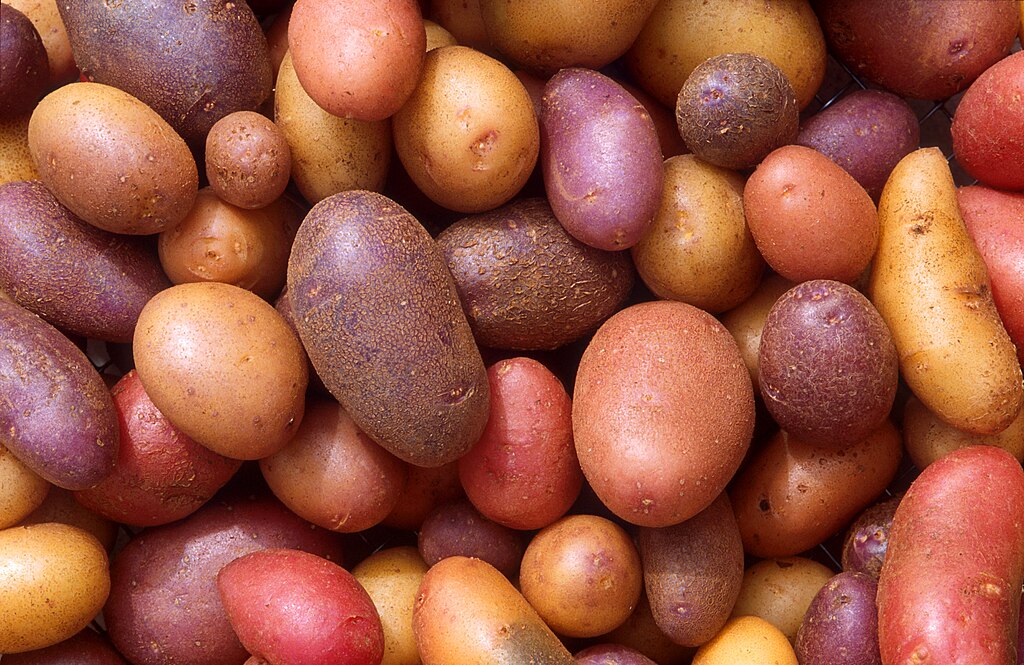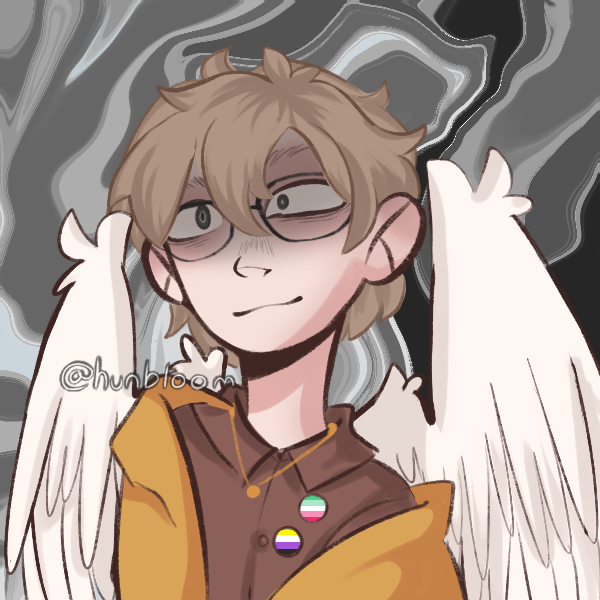Hi everyone! So I’ve recently switched to Linux and I’m having a lot of fun downloading software and replacing my old stuff with it. I’m wondering what you all use?
My switched softwares:
Obsidian -> Logseq - Obsidian is great and all but I think Logseq is also competent in its own way even without plugins. I am currently exploring templates to create my own daily journal/habit tracker like I did in Obsidian.
Word/Notepad -> LibreOffice - Seems to have a lot of options. Currently using the writer software for quick notes.
Canva -> Inkscape - I am aware that Canva is a website/android app, but I decided to switch from it to Inkscape by utilizing open source illustrations such as Undraw for graphics needs. I still need to look up tutorials on how to use it properly, though!
Clip Studio Paint -> Krita - I actually made this switch a month or two ago, but I’m really enjoying Krita a lot more than I ever did Clip Studio Paint. Less things to get distracted by, giving you more chances to learn how to utilize the essentials.
Things I’d like to explore in more detail:
- Thunderbird as a calendar/email/task software
- Whether or not I should stick with Calibre for book management
- Kdenlive as a video creating program. I haven’t created videos before, but it seems fun.
How about you? What do you enjoy?
My last experience with Win10 vs now:
(FOSS in bold)
- Edge -> LibreWolf,
Brave - Windows Mail & Calendar -> Thunderbird, Tutanota
- Windows Explorer -> Thunar, PCManFM
- Todoist/iCal -> fruux + Thunderbird
- NCH VideoPad -> Kdenlive
- iTunes, Spotify -> CDs, Audacious, DeaDBeeF, Bandcamp
- VLC -> mpv, Parole
- OneNote ->
ObsidianJoplin + Backblaze B2 - Firefox Lockwise -> Bitwarden
- WPS Office -> LibreOffice, ONLYOFFICE
- VSCode -> Micro
- Visual Studio -> Micro + GCC + Glade
- Finale -> MuseScore
- NT -> Linux (obviously)
- Windows 10 -> Debian, Arch Linux
And now, the online services:
- Ecosia -> LibreX
- YouTube -> CloudTube
- Twitter -> Mastodon
- Reddit -> Libreddit, Lemmy
- Dropbox, Google Drive -> MEGA, Filen, USB sticks
- Blogger -> Neocities, Flounder (gemini protocol)
Sorry for the long post. Here are some potatoes:

It took me a few seconds to figure out what the heck just popped up on the side of my screen, haha! Thank you for the potatoes.
Out of curiosity do you find that neocities is easy to set up for a beginner? I’d like to get into blogging that I don’t have to worry about getting comments on. Something where I can just ramble on a bit about how things went that day, what I learned, and then post and never touch it unless I want to reread that day’s entry.
People should stay far away from Brave.
Brandon Eich’s controversial past and opinions:
https://www.bbc.com/news/technology-26868536
Anti-vaxxer and far-right conspiracies:
https://www.nytimes.com/2020/12/22/business/brave-brendan-eich-covid-19.html
https://twitter.com/BrendanEich/status/1337496169690230784
https://www.reddit.com/r/BATProject/comments/khmbvl/do_you_feel_that_brendan_should_step_back_from/
https://twitter.com/BrendanEich/status/1538253982845399040
Privacy related:
https://www.lifewire.com/brave-browser-falls-short-of-its-promises-of-privacy-5206799
Brave automatically redirected searches to affiliated versions which they profited from:
https://www.theverge.com/2020/6/8/21283769/brave-browser-affiliate-links-crypto-privacy-ceo-apology
Brave collected donations on content creators behalf without consent:
Brave leaked Tor/Onion service requests through DNS:
https://www.reddit.com/r/netsec/comments/lndfms/more_in_comments_brave_browser_leaks_your_tor/
Brave sent unsolicited marketing mail to users, though they claimed it was anonymous:
https://twitter.com/sebmck/status/1531740563900448769
Brave temporarily whitelisted certain Facebook and Twitter trackers without telling users:
- Edge -> LibreWolf,
Not a replacement per se, but I am just amazed by how much better some common FOSS apps feel in Linux compared to Windows. Apps like VLC, Calibre, FreeCAD, Libreoffice, hell even Firefox are so much smoother in a UNIX system, almost like THIS is their real home!
- Inkscape as well for all of the Adobe stuff
- Pandoc and Pympress for all my presentations
- Claws Email
- Khard + Khal + todoman + vdirsyncer for the rest of the PIM stuff
- Zathura is my PDF reader
- Syncthing replaced GDrive more or less
- qutebrowser
I switched to Linux in 2006.
Calibre is excellent for ebook management. If you are just using it to sync with your ereader you might be able to do without. I have a Kobo and use Calibre but will likely stop doing that because there are now tools that are a lot lighter to convert epub to kepub and add covers, etc.
I keep a list of software I like to use, I need to update it.
What distro did you choose?
Calibre is very powerful for book management, you should stick with it.
This is a list of all the open source software I have come across and use frequently to semi frequently. There will likely be some overlap with stuff everyone has already posted.
Photography and Image manipulation
- Darktable → RAW photo processing
- GIMP→ Photoshop alternative
- Krita → Digital painting (have only used it a bit, but I hear it’s good)
- Inkscape → Vector Graphics
- Automatic1111 → Diffusion model AI toolkit (mostly Stable Diffusion but also has extensions for other diffusion based models like OpenAI’s Shap-E)
3D modeling and Printing
- Blender → 3D Modeling, sculpting, 2D animation, compositing all rolled together (simply one of the best examples of FOSS)
- Meshroom → Photogrammetry
- PrusaSlicer → 3D printing slicer based on Slic3r
Video editing and Processing
- Kdenlive → Genuinely good video editor
- FFMPEG → Command line media toolkit (very complex but also works on android through Termux)
- Instant NeRF → Neural Radiance Fields, think photoscan to a 3D representation (not meant to make 3D meshes unfortunately)
Misc
- Calibre → E-book management
- Serge → Self hosted Local LLM’s made a bit easier to deal with
- Firefox → Web browser
FOSS I’m excited for
- DragGAN → Manipulate images by intuitively dragging, more on this here and here (official code being released this month but there are already projects based on the paper with working examples)
- CoDi → “Composable Diffusion” Any2Any conversion Txt2Vid, Vid2Audio, Audio+Txt2Img, whatever
- Neuralangelo → Promises to be NeRF’s for 3D models (don’t know if it will be FOSS but I’m hopeful)
LibreOffice (and not OpenOffice) is a must.
I have tried really hard to make the switch to GIMP, but Photoshop is too engraved within me.
I will probably keep using Photopea instead.
I think most of them I’d be using on windows as well. Like blender, gimp, krita, librewolf, libreoffice, thunderbird, virtualbox, etc… etc… etc… Although it was 15 years ago I had switched to mostly open source applications in the years prior to eventually switching to linux entirely.
Krita is pretty amazing. I got both of my daughters started with it when they expressed interest in doing art. Both of them have used it almost exclusively for years (both in HS now) and produce some great work. They try other tools recommended by friends but keep going back to Krita because it has all the tools they need.
I’ve never heard of Logseq. But I use an obsidian alternative called trilium. I’ll give logseq a shot.
I will say, despite how old and outdated calibre looks, it’s an absolute beast and contains every feature you would need. I use it to tag all my pdfs with the correct book information (which calibre with find for you) and use it to export my books into a specific folder hierarchy for easy browsing using KOReader on my Kobo e-reader (which runs on linux!)
Surprisingly, I installed Calibre on Linux and for some reason it just looks…better on Linux? Not sure if its because it opened up in default dark mode or what, but it doesn’t look as ugly when I’m using it on Pop_OS. Feels at home, really.
I will say its definitely a beast. I’ve used it a few times but I never really went in depth with it’s features. I’m definitely liking the bulk tag editing, the shop search (I’ve been looking for a way to search DRM-free books and it has it!), and the default tags. The last one is mainly because I think getting a tag called “mentally ill women” for The Yellow Wallpaper is a little funny.









